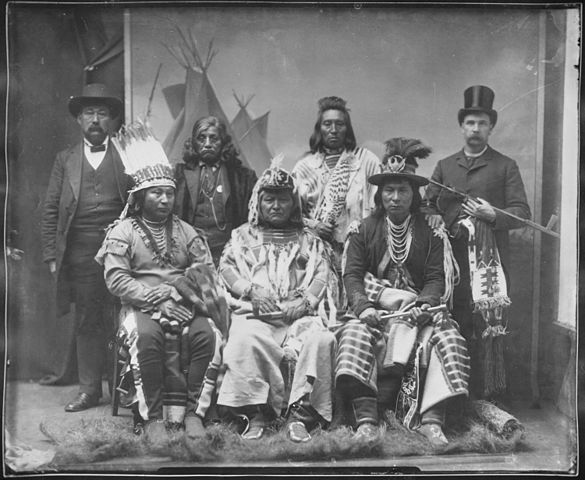
The Walla Walla people are an indigenous tribe of the Sahaptin group, residing in the Northwest Plateau region. Their name translates to “many waters,” and they historically inhabited the Columbia River region in the northwestern United States. The Walla Wallas shared land and a governmental structure with the Cayuse and Umatilla tribes, forming the Confederated Tribes of the Umatilla Indian Reservation near Pendleton, Oregon. Some Walla Wallas are also part of the Confederated Tribes and Bands of the Yakama Nation. The tribe had interactions with European settlers, starting with the Lewis and Clark Expedition in 1805. They encountered David Thompson of the Canadian-British North West Company in 1811, who later established Fort Nez Perces in the Walla Walla territory. The Walla Wallas adapted to include cattle herding and participated in expeditions to secure livestock. They were present at the Walla Walla Council in 1855, where they, along with other tribes, signed the Treaty of Walla Walla.
The Walla Walla people, like other tribes, suffered greatly from European invasion and introduced diseases. The arrival of settlers brought diseases like smallpox and measles, causing a devastating decline in their population. Additionally, their lands were encroached upon, leading to displacement and loss of resources. Despite these challenges, the Walla Wallas adapted and persevered, asserting their cultural identity and sovereignty.
Several tribes in the Northwest Plateau region make to the wider linguistic and cultural group known as the Sahaptin people. These tribes are unique from one another, but they also speak the same language and have similar cultural traits. Along with other tribes including the Cayuse, Umatilla, Yakama, and Palouse, the Walla Walla people are one of the Sahaptin group. They are linked by a common ancestry, language, and cultural practices, but they also uphold their individual customs and history.
The Walla Walla people engaged in significant battles in the Walla Walla region, driven by the theft of their lands and the influx of settlers. One notable conflict was the Cayuse War (1847-1855), where the Walla Wallas, alongside the Cayuse, Umatilla, Nez Perce, and Yakama tribes, fought against encroaching settlers and the United States Army. This war emerged from tensions over land rights, cultural clashes, and mistreatment of Native Americans.
The Walla Wallas and other tribes fought valiantly to defend their ancestral lands, cultural heritage, and way of life against the overwhelming pressure of settler expansion. These conflicts represented the struggle of Native American communities to protect their sovereignty and resist the unjust encroachments that threatened their existence.
Another consequential event was the Yakima War (1855-1858), which was part of the broader Puget Sound War. The Walla Wallas, alongside the Yakama, Palouse, and other tribes, resisted the intrusion of settlers and clashed with U.S. military forces. These battles were rooted in the theft of Native American lands and the rapid influx of settlers into their territories.
